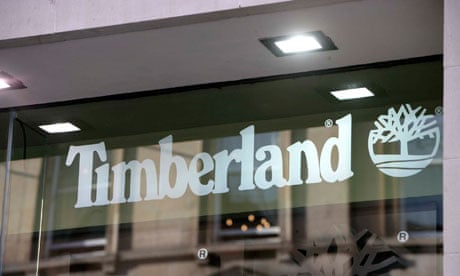A decade ago, Timberland was among many apparel companies dogged by accusations that some of its products were manufactured by children. Since then, the company has emerged as a leader in social responsibility and transparency. Extensive quarterly sustainability reports and factory audits are among the steps Timberland has taken towards progress on responsible sourcing and factory conditions.
Going beyond improvements in the quality of life of factory workers, Timberland now demonstrates what companies can do to provide a better quality of life for children whose parents manufacture its products. From child care to clean water projects, companies looking to mitigate their impact on working families and their children can learn some lessons from Timberland.
One side effect of long and tangled supply chains is that children are separated from their parents in long stretches of both time and distance. In China alone, a minimum of 50 million children are left behind as their parents leave rural areas to work in factories. Besides the emotional impact of living far from their parents, such children often lack the supervision and family structure necessary for the best possible upbringing.
To that end, Timberland partners with organisations including the All-China Women's Federation to provide companionship and education programs for factory workers' children. Timberland employees spent their own vacation time organising a summer camp for 700 "left behind children." According to Colleen Von Haden, Timberland's senior manager of code of conduct, the first camp in 2009 was so successful that it is now an annual program.
As wages and working conditions improve in China, Timberland's factory workers are beginning to demand a better level of work-life balance, something that was once seen as a western luxury. The stress of their children living far away is an overwhelming burden for women, so Timberland collaborates with Verité, an NGO that provides social audits and training, to develop a program to help workers cope with both shop floor and home stress.
Programmes focused on workers and their children also thrive in other countries where Timberland sources its apparel. In India, one factory in Chennai provides day care for the children of its workers. Women appreciate the benefit of leaving their children in a safe environment, while they work their shift at the factory, and enjoy the opportunity to visit their children when they are on break. Another factory in the Dominican Republic led a project to build a school for both workers' children and others living in the community.
The communities in which some of Timberland's factory workers and their children live lack basic amenities including safe and clean water. While building schools and providing day care are noble, neither are of much benefit if clean drinking water is unavailable and health risks are significant. One of the many water projects that Timberland funded is near a factory in Ambur, India, in a community where residents have long suffered from waterborne illnesses. Located near the factory and a school, a water tower completed last year guarantees that local children stay healthy and alleviates families of the expense of payment for water that has been transported over long distances.
One hundred years after strikes in the New England mill town of Lawrence, which gave rise to the organised chant: "We want bread, and roses too", demand for a better quality of life now resonates in factories around the world. For workers at garment factories, their "roses" are opportunities for their children to blossom into productive citizens who will have a more comfortable life than them. "As your workforce matures," Von Haden says, "you have to be accommodating to keep those employed in your factories." Timberland's action on this front is one example of how multinational businesses can do a better job of not only protecting their workers in the farthest reaches of their supply chain, but also doing more for their children so they can grow and thrive.
Leon Kaye is founder and editor of GreenGoPost.com
This content is brought to you by Guardian Professional. Become a GSB member to get more stories like this direct to your inbox

Comments (…)
Sign in or create your Guardian account to join the discussion